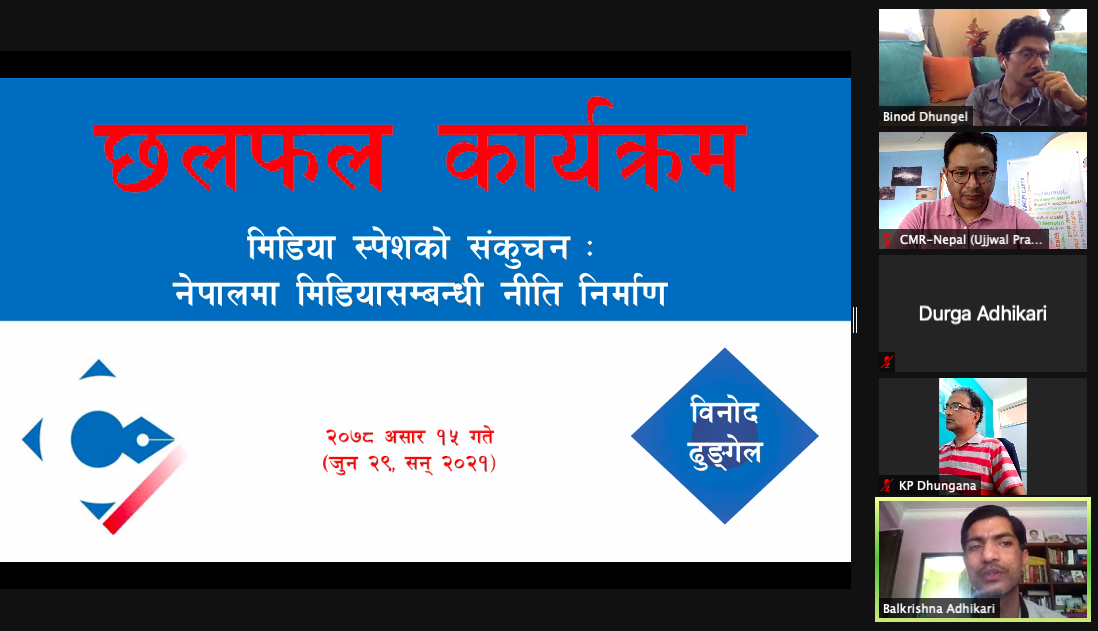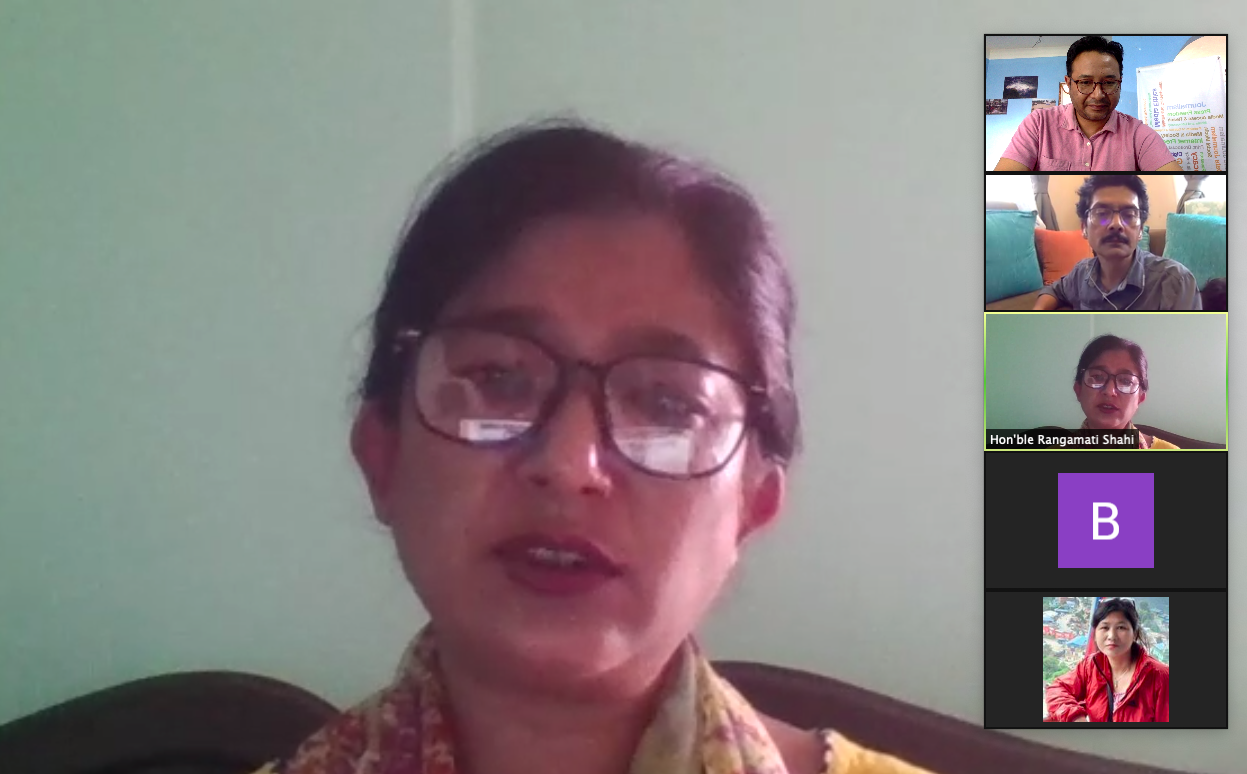A discussion program entitled “Shrinking of media space: Drafting of Media Policies in Nepal,” was virtually organized on June 29, 2021.
The participants in the discussion highlighted the making of media laws in federal level restricts freedom of the press and opinion. They argued that media laws that are in process of drafting is not conducive for journalism in Nepal.
Presenting the discussion paper media expert and journalist Binod Dhungel argued that the legal dynamics of newly drafted bills and laws passed by the parliament restricts media freedom and freedom of opinion.
Dhungel pointed out the need to advocate to amend such provisions for the functioning of media in Nepal.

Former Member of Parliament Rangmati Shahi, who was also member of the Development and Technology Committee shared her experience working in the committee.
Shahi pointed out that much discussion is required with the stakeholders when it comes to media related laws as parliament members do not have expertise in the field. She said that it was bitter truth that the law-making process was guided by the majority in the parliament. Shahi was lawmaker from the opposition Nepali Congress party in the House of Representative.
Speaking at the occasion, former president of Federation of Nepali Journalist (FNJ) Suresh Acharya said that lots of discussion on media related laws have been done and the major question is whether state mechanism listens to such suggestions. He argued the state mechanism does not own the documents prepared by the experts.
He pointed out that the major problem lies in the political will power and bureaucracy in the making of the law, where the latter’s intention is controlling and to remain in the driving seat.
Senior Vice- President of FNJ Ramesh Bista was of the view that the bills such Media Council, Information Technology Bill and most awaited draft on Mass Communication Bill have controlling provisions from the government, which cannot be accepted.
He argued that media related laws are not drafted transparently, are against the constitutional provisions and without much consultation with the stakeholders, which is even practiced by the local and provincial government.
Lecturer at Central Department of Journalism and Mass Communication Dr. Kundan Aryal said that it was highly necessary to lobby with the political parties and actors with respect to the making of media policy. He suggested that the stakeholder should come together in fundamental principles and discuss the issue with the parliamentarian and political actors.

Media Expert Binod Bhattarai said that the formulation of media laws in Nepal is not “conducive for journalism” and doing journalism is “very difficult.”
Bhattarai argued that only speaking about the “complete press freedom” in speech by the media activist which is endorsed in the preamble of the Constitution of Nepal is only principally agreed form, but it is not a law, this confusion needs to be addressed.
Bhattarai believed it was necessary to dissociate from the political leadership and force them for discussion. He pointed out that unless journalist and media maintain distance from political parties, and do journalism for the people, the political parties will not feel the threat.
He suggested that only solution is to the problem is to team up with the media research organizations and journalist association file a public litigation in the court and challenge the laws and bring out the legal interpretation to improve press laws. If it is not done the government will continue to bring the same restrictive laws in the future, he emphasized.
In the program, the participants also highlighted the need of gender friendly press laws. Former President of Working Women Journalist (WWJ) Amika Rajthala and Press Council member, Durga Bhandari stressed on the need for participation of women in the institution set up by the government that regulates media.
Communication Registrar of Bagmati Province Rewati Sapkota highlighted the problems related to the laws in the federal and province level, that have affected in the day-to-day functioning of the registrar office. He emphasized the need for clear demarcation and distribution of power between the three tiers of the government.
The discussion was participated by 30 media researchers, academics journalists and media rights activists.
